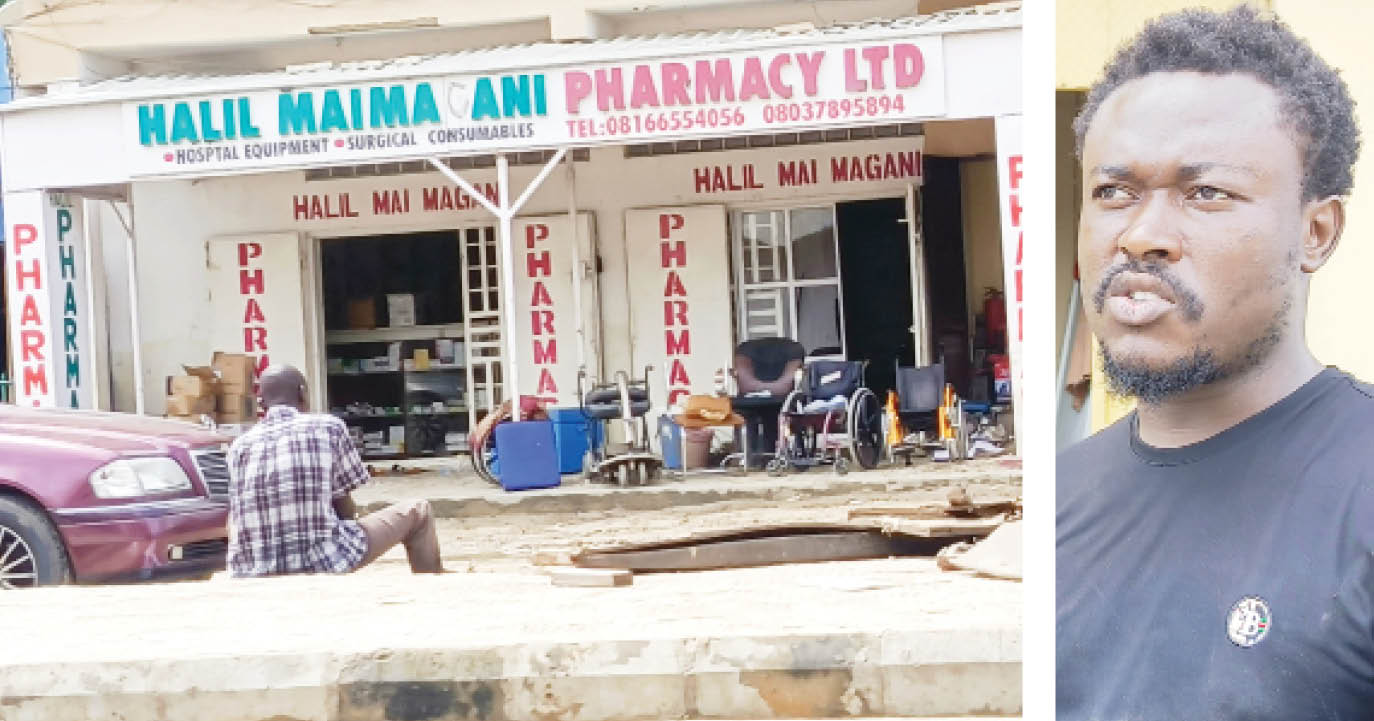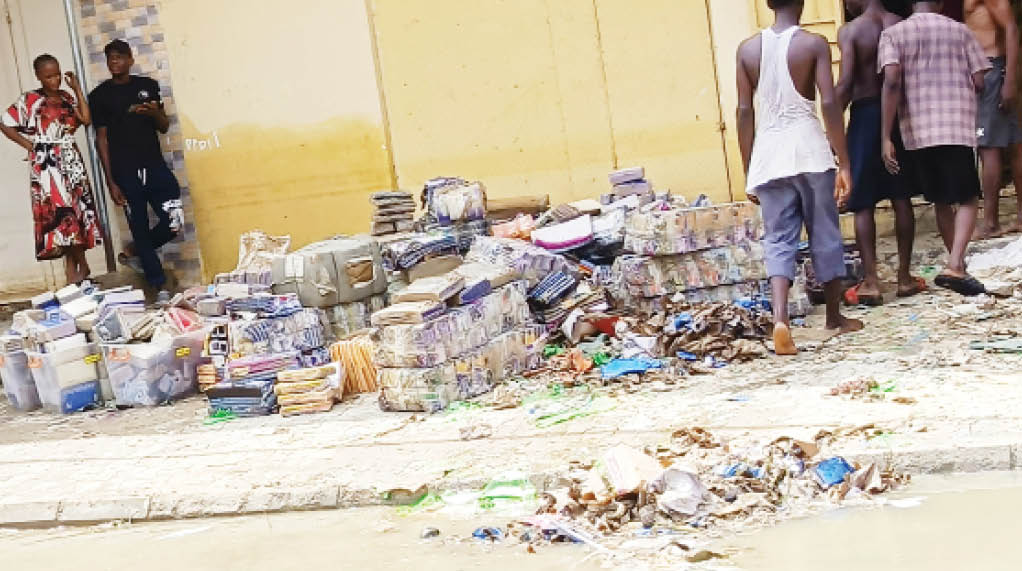Maiduguri flood: Another tragedy for recuperating traders
Tales of calamity in Maiduguri markets are not new to anyone who lives in Borno State and on social media, but little do people know about the traders’ resilience. Armed conflict led by Boko Haram once grounded the four major markets in Maiduguri, then two fire incidents threw them into agony. A few days back, […]

maiduguri flood another tragedy for recuperating traders
Tales of calamity in Maiduguri markets are not new to anyone who lives in Borno State and on social media, but little do people know about the traders’ resilience.
Armed conflict led by Boko Haram once grounded the four major markets in Maiduguri, then two fire incidents threw them into agony.
A few days back, the floodwaters swallowed half of Maiduguri, submerged all the three markets and destroyed the resources traders reinvested to recover from the previous shocks.
Daily Trust’s correspondent who went round the capital city, where the flood water had receded, observed how the traders were beginning to clear debris around the popular Monday Market and close to shops on Zoo Road.
- Gov Alia, rep member bicker over seized palliatives
- Maiduguri flood: Another tragedy for recuperating traders
Most of the victims who spoke with our correspondent, said it was too early to give a fair estimate of what they lost, but recounted their ordeal during the incident.
Ebuka Abunake, who is one of those hit by the flood disaster on Zoo Road, said he lost two shops, one for Information Technology (IT) accessories and the other for stationery.
Abunake said, “We can’t really quantify our loses; we are still trying to assess what the level of damage is, but from our database, we have lost 700 cartons of A4 paper that we sell at N24,000 per carton and 600 cartons of exercise books and other papers.

“Based on the assessment, we have lost over N10m. In this store, three printers that we sell N1.3m each have been soaked. Our IT store is still not accessible, so I cannot tell you the exact amount we lost to the flood.
“Already, the state is battling a myriad of humanitarian crises. Before now, Boko Haram insurgency ripped up many people’s investments and rendered them poor, then came the fire incidents, and now the floods.”
He also said that over 20 people had been laid off from his shop staff to labourers and security men following the flood.
He called on the government to, as a matter of urgency, come to the aid of the traders in the town to prevent an economic crisis in the state.
Another trader, Muhammad Garba, who has a provision store at the popular Monday Market, said he rushed to the market upon receiving a distress call from the security men guarding the shop.
He said, “Before I reached there, two of my shops were submerged. I cannot tell you the exact loss. We just arrived today trying to salvage the little things left. Unfortunately, some of the goods have been stolen by some people who posed as helpers.
“It’s a double tragedy. We were just recovering from a fire incident and another one struck. I don’t know what to do. I can assure you that the majority of the people affected are heavily in debt. Most traders you see here are just agents of dealers and companies in Kano, Jos and Lagos.”
Muhammad Husseini, a car dealer, said, “All the cars were submerged, but the most unfortunate thing is how thieves stole about 26 car batteries.”
Daily Trust further reports that the flood also submerged the Gambaru International Cattle Market, where dealers said they lost over 100 cows.
A butcher, Alhaji Dangwoza, said they refrigerated tonnes of meat ready for sale the following day before the flood struck.
He said, “When you talk about the Gambaru Cattle Market; the cattle market is here, the grains market is here, where international trade has taken place for centuries, but today, all these investments have been washed away by the flood.”
A sugar and flour dealer in the market, Muhammad Bulama, said, “Our shops opposite the late Alhaji Ibrahim Maisuga were all submerged. I can assure you that sugar, flour, rice and condiments worth billions of naira have been submerged.”
On his part, Bashir Umara, said he lost more than N10m in his medicine store opposite the Borno Radio and Television (BRTV).
He said, “We were not able to remove much from the two shops. Most of the drugs were soaked. They are contaminated, so we can’t sell them.
“We thank God for the trial and pray that this will open a new beginning in our lives.” Meanwhile, Senator Ali Ndume (APC, Borno South) called on the federal government to step up support for the flood victims.
Ndume said that the catastrophe had not only affected the people of Borno, but people from all the six geopolitical zones of the country.
He said, “We have people and traders living in Borno who are from the South East, South South, South West and the entire Northern region.
“For me, Igbo people are among the most affected by this flood, because, if you go to Monday, Gamboru or Budum markets you can see shops owned by the Igbo and the Yoruba were all submerged.
“Apart from the many people who were killed, go to the Maiduguri International Cattle Market and you will be shocked to know that most of the animals, including camels, have been submerged and killed by the flood.”
The state’s Governor, Prof. Babagana Umara Zulum, called for resilience from the traders, saying that Borno had always been known for its resilience, hence that, “We need to strongly rely on this to rebound from this disaster.”
He said the recovery process would require collective innovative thinking and commitment to rebuild lost infrastructure, businesses and homes.
Zulum said, “Government is open to constructive ideas from everyone on how we can fortify our state against future disasters.
“We shall leverage on this calamity as an opportunity to invest in sustainable practices and infrastructure that can withstand the forces of nature.”
With the revelations, it will be a long road for not only traders in Maiduguri, but the entire state, to recover from the devastation.
